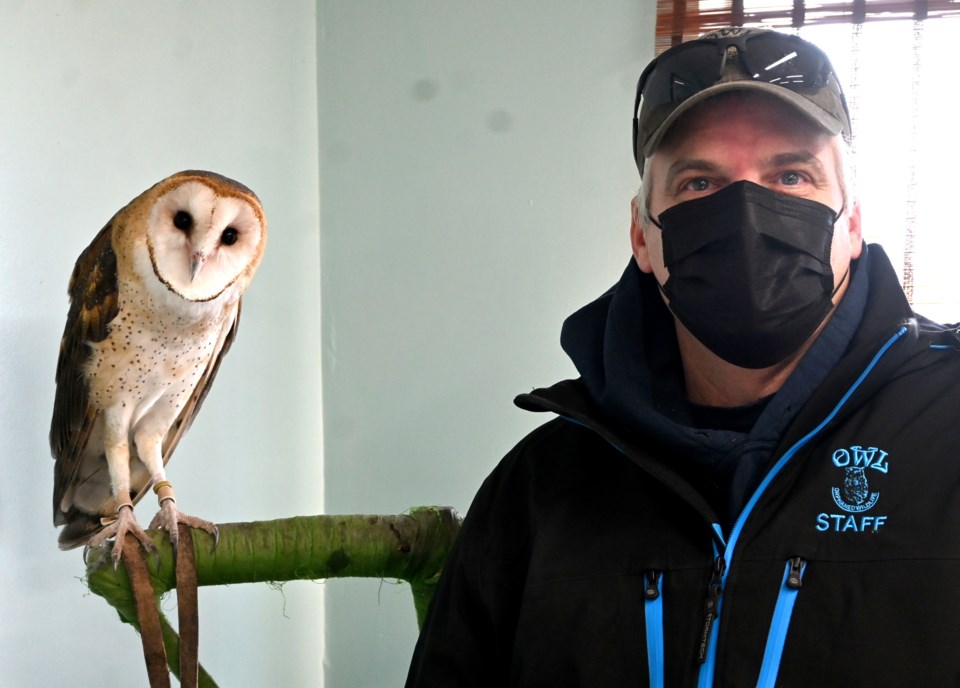Rob Hope wishes it was a happy ending for every raptor treated at OWL Orphaned Wildlife Rehabilitation Society’s East Ladner facility. Instead it’s about giving these wonderful species a fighting chance.
“Here at our centre we give the animals an ample opportunity. If there is even a fraction of a chance it’s going survive we will give it that chance. Sometimes we succeed and sometimes we don’t,” said Hope, who is OWL’s care manager. “In over 20 years I have pretty well seen every injury and every scenario that can happen. With that knowledge you are able to figure out does that bird have a chance? Our frame of mind is they were deceased as soon as they come through our door. If they were left where they were, they would have died. We take into consideration the animal itself too as we don’t want it suffering. If we do see injuries that we know are not going to be savable, euthanasia is then the best option rather than it suffering.”
OWL took in more than 800 raptors in 2020 and this year is off to another busy start.
Hope figures wildlife is owed the rehabilitation centre given how responsible humans are for their harm.
“From our end of things we aren’t interfering with nature we are just trying to supplement it as rehabbers. We help put those animals back in the wild because without those human caused factors we wouldn’t be getting them,” Hope added. “Probably 90 percent of our intakes are human cause as the factor. Cars, windows, lead, rodenticides, electrocutions, entanglements in fishing lines and netting. Pretty well we have seen the whole gauntlet.”
Even when raptors come in injured from fighting, Hope and his staff routinely find lead in their system which make them highly vulnerable.
“It impacts their brain, their breathing, their eating. Pretty much why they lost the fight,” he said.
He suggests a simple change in people’s habits and purchases could make a significant difference. What can attract rodents can mean a hungry raptor isn’t far away.
“When you are in your vehicle there is usually no avoidance and your safety comes first, but just throwing out those apples and banana peels from your car window…rodents are going to the side of the roads for those and raptors are coming in fast and furious to pick off the rodent,” said Hope. “For rodenticides, people can change to snap traps and things of that nature to remove the poison from the environment. People are told they are environmentally-friendly, but anytime you use poison it’s not.”
OWL is also kept busy thanks to a province-wide network as the premier destination in B.C. for injured raptors.
There are volunteers located in such cities as Cranbrook and Smithers that will initially tend to the injured raptor then arrange for transportation to Delta through the generosity of Pacific Coast Airlines or Bandstra Trucking. Once they arrive, there is additional care support from Huff Animal Hospital, Tsawwassen Animal Hospital and Richmond Animal Hospital.
“We have the infrastructure to help these animals far and wide. We have volunteers all over the place and they really are the heart and soul of our operation,” added Hope. “Bandstra Trucking, that does it pro bono, for us have no idea just how many they have saved. Then we are putting that money we are saving into helping the animals.”



